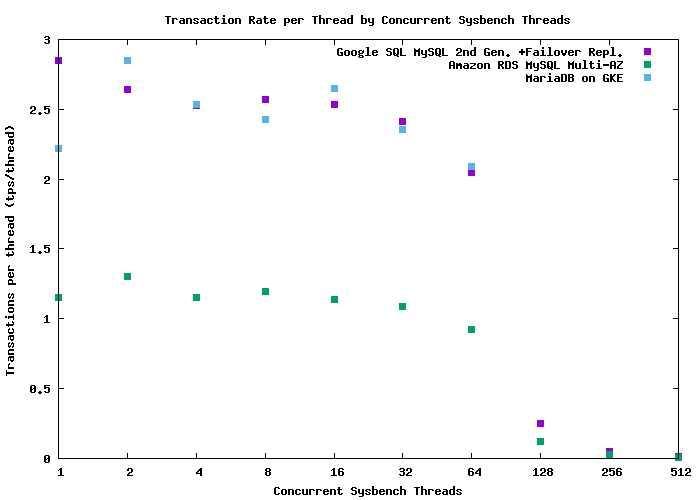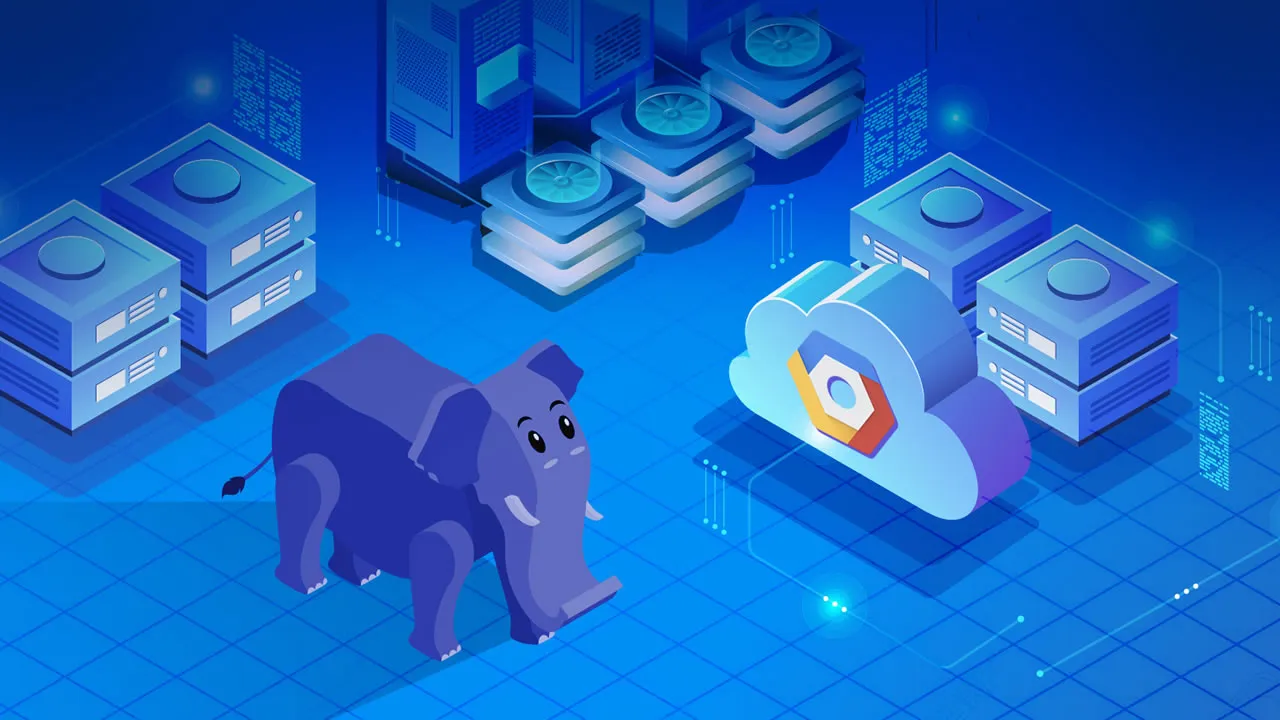I’ve found that the strength of Google Cloud’s services comes from consistently delivering across a few key metrics, namely reliability and performance. When dealing with SQL databases, it’s hard to imagine any metrics more important than these two things, and Google’s Cloud SQL delivers.
To become familiar with Cloud SQL, we’re going to walk through the creation of a SQL database and explore the advantages Google Cloud offers us when compared to other solutions. We’ll also be dipping into the Cloud SQL API to see how we might manage our SQL database programmatically.
Cloud SQL Versus Alternatives
There aren’t many metrics to consider when comparing Cloud database instances aside from price and performance. I’ve found Cloud SQL to come in on the higher end of both these metrics.
Performance
Google Cloud’s databases tend to clock in at the higher end of performance benchmarks. To demonstrate, I’m going to borrow a quick comparison of GCP vs AWS cloud databases:

When compared to AWS RDS (green), GCP SQL instances (purple) clock in at better performance speeds across the board. There are other metrics we could compare, but chances are you’re going to go with the database of whichever cloud vendor you’re locked in with anyway.
#google cloud #sql #cloud sql #cloud
